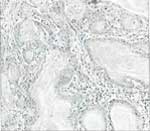Famished finish
 SCIENTISTS from the Delhi-based National Institute of Immunology (NII) have developed a drug called MUJ-7, which they claim could be a potential weapon against cancer of the colon and rectum.
SCIENTISTS from the Delhi-based National Institute of Immunology (NII) have developed a drug called MUJ-7, which they claim could be a potential weapon against cancer of the colon and rectum.
The new drug's modus operandi is to starve the cancer cells of the growth factors that sustain them, explains Rama Mukherjee, head of the department of microbiology at the NII. Although the new drug is yet to be tried on humans, laboratory tests on rats indicate "that MUJ-7 is lethal against cancer cells and there is a complete regression of the tumour".
Most of the anti-cancer drugs currently in vogue, says Mukherjee, inhibit the proliferation of cells -- both cancerous and normal -- and are quite toxic to the self-renewing cells of the body, such as the blood cells. Some affect the process of protein synthesis, thereby reducing the protein molecules in the human body. Some of the recent drugs that seek to arrest the process of cell division to control the proliferation of cancer cells have multiple side-effects.
But "MUJ-7 is expected to strike and counteract the growth factors produced only by the cancer cells. It will specifically kill them while the normal cells will remain unaffected. Although our laboratory tests do point to the tremendous potential of the drug, further toxicological studies will have to be carried out to assess its true effect on human subjects. We believe that it will also be effective against other cancers," adds Mukherjee.
At present, the Dabur Research Foundation is conducting toxicity tests to assess MUJ-7's anti-cancer potential. Says D B Anantha Narayana, general manager (R&D) of the foundation, "We have more than 37 cell-lines or cultures on which the screening of MUJ-7 can be performed. By year end, we should be able to identify certain concentrated leads for the development of potential anti-cancer drugs for commercial use."
